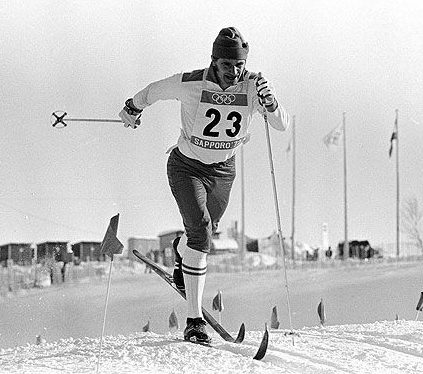Housekeeping
- we will catch up to syllabus soon
- I will make readings from Ethics in Sport available in case you didn't bring home (this afternoon)
Good Sport
Who is Thomas Murray?
- philosopher, bioethicist
- served on panels that govern elite sport like the Olympics
- has chaired Ethical Issues Review Panel at the World Anti-Doping Agency
- member of IAAF Disciplinary Tribunal
How elite sport should operate
- should doping be allowed?
- what kinds of new equipment should be permitted?
- when should someone compete in the Paralympics, not the Olympics?
- when should men and women compete separately?
- should intersex and trans women compete in the women's category?
Murray's views plus contrasting views in other articles
But wait...elite sport isn't operating at all
- Tokyo Olympics postponed, Wimbledon postponed
- Tour de France...discussing holding without spectators
- Topic: sports without live spectators
- Question: can sports have their full "meaning and value" if there are no live spectators?
- Is there a presentation group that would like to explore this topic?
- Let me know by email after class (by 5 pm)
- I will suggest some ways to pursue philosophically
Good Sport, Chap. 1: The Slippery Slope to Doping
Types of doping that are prohibited
World anti-doping agency (WADA) list
- always prohibited
- prohibited during competition
- prohibited only by specific sports
- The Armstrong Lie is a good documentary that tells the whole story well. Watch for free here (if you have time): The Armstrong Lie Watch online full movie
- The Oprah Interview:
Lance's doping methods
1. EPO (erythropoietin)
- goal: increase red blood cells that carry oxygen to muscles
- hematocrit=percentage of cell volume composed of red blood cells. Athlete wants 50% or better.
- method: take EPO pills. Same drug used for people with many diseases (EPOGEN)
2. Blood-transfusions
***Natural alternatives to 1 and 2***
- goal: increase number of red blood cells that carry oxygen to muscles
- one method: A. remove blood during event, which stimulates natural hormone EPO (erythropoietin) to increase red blood cell production; B. transfuse blood back in
- genetic variation--you happen to have a super high hematocrit!
- training at high altitude--the oxygen deprivation causes the body to create more red blood cells
- hypoxic air machine and tent -- same effect without the trip to Colorado
- goal: bigger muscles, more strength
- method: synthetic androgens that increase muscle mass ("anabolic steroids") or natural testosterone
4. Other
Testing to prevent doping: how often, how intrusive?- human growth hormone
- diuretics
- The Armstrong Lie: 59:40--1:05
- all the time, very intrusive
What we value in sport: natural talent, dedication (in training), courage (during competition).
 |
| p. 15 |
 |
| p. 21 |
 |
| p. 33 |
Foundation for all the arguments in the book
Murray's approach is...
- Permitted = consistent with TDC associated with a sport
- Prohibited = inconsistent with TDC associated with a sport
Murray's approach is...
- Internalist or Externalist?
- If Externalist, which kind? (Virtue Ethics, Utilitarian, Kantian)
- If Internalist, which kind? (Formalist, Conventionalist, Broad Internalist)
Murray's Argument Against Doping (reconstructed)
- What’s valuable in sport is natural talent, dedication, and courage.
- As much as possible, what’s valuable in sport should determine who wins and loses.
- When athletes dope, doping can determine who wins and loses instead of natural talent, dedication, and courage. THEREFORE,
- Doping should be prohibited.
Eero Mantyranta
- gold medalist with natural 68% hematocrit

Someone could argue:
- Mantyranta's didn't earn the high hematocrit that helped him win gold medals in skiing.
- If unearned advantages were unfair, Mantyranta wouldn't be entitled to his gold medals.
- But he was entitled to his gold medals.
- So unearned advantages are not unfair.
- The only possible objection to Armstrong's doping is that it gave him unearned advantages. THEREFORE
- Armstrong was also entitled to his wins.
- Which premise does he reject? (just one!)
- Why does he object?
- More on this next time, because next authors (Foddy and Savulescu) also discuss Mantyranta.
Good Sport Chap 3: Rules and Meanings
Murray: this is also the right framework for equipment and rules issues
 |
| p. 38 |
How to make arguments about equipment or rule changes
- Sport X values this set of natural talents plus dedication and courage: _____.
- Equipment or rule change Y would/wouldn’t change the set of natural talents needed for sport X. THEREFORE,
- Equipment or rule Y should be prohibited/permitted.
Some equipment Murray discusses--
1. Klapskates, p. 40
What are they??? (follow link)2. Pole vaulting technology, p. 40
- Does the new equipment draw on the same talents?
![Good Sport: Why Our Games Matter -- and How Doping Undermines Them by [Thomas H. Murray]](https://m.media-amazon.com/images/I/51Dez46QMpL.jpg)
